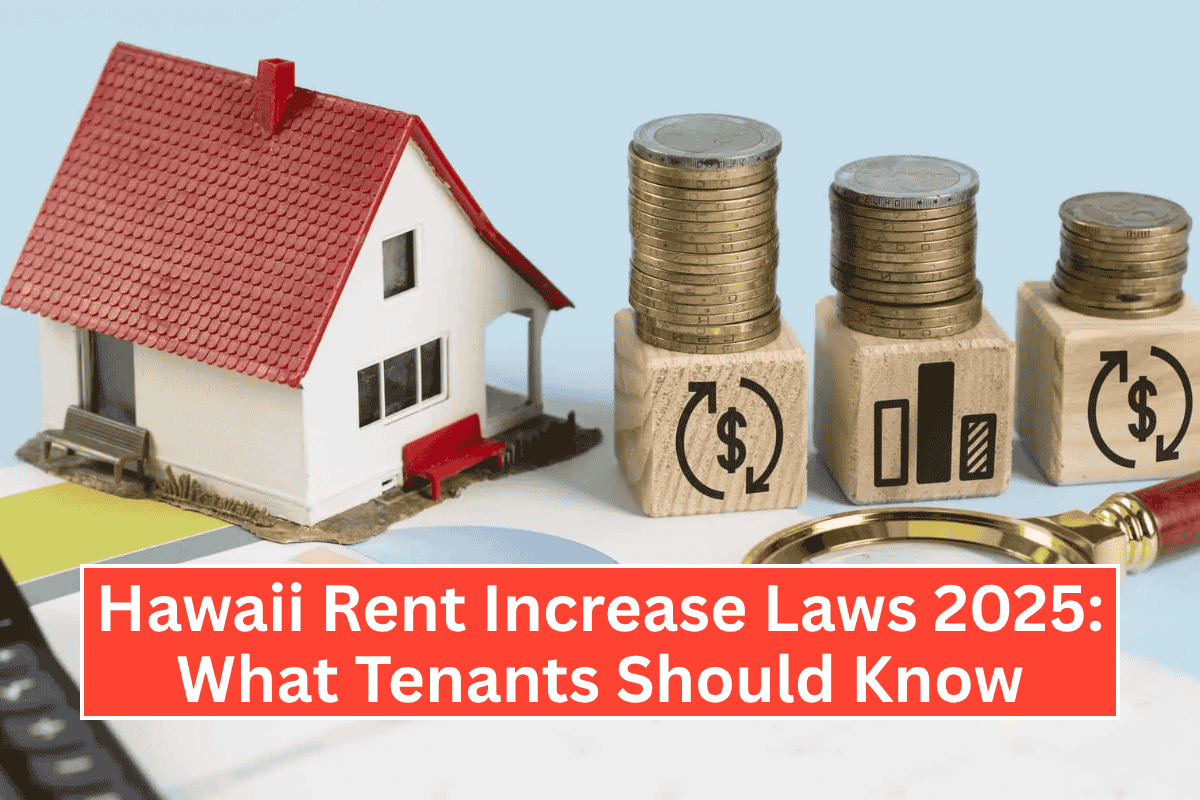If you’re a tenant or landlord in Hawaii, understanding the rent increase laws is essential to ensure you’re complying with the state’s regulations. Hawaii is known for its tenant-friendly laws, and 2025 is no exception.
In this guide, we’ll walk you through everything you need to know about Hawaii’s rental laws, from rent increases to tenant rights, and what both parties should be aware of when it comes to leases and rent regulations.
Is Hawaii a Landlord-Friendly State?
Unlike some states, Hawaii is more tenant-friendly, offering renters a variety of protections under its landlord-tenant laws. These laws provide significant rights to renters, including:
- The right to request repairs and deduct the costs from the rent if the landlord fails to fix issues within 12 days.
- Tenants can cancel a lease or take legal action if landlords neglect necessary repairs.
- Renters also have the right to get their security deposit back within 14 days, minus any deductions for damage beyond normal wear and tear.
These protections make Hawaii more favorable to tenants, ensuring they have the resources to resolve disputes or issues with their landlords effectively.
Landlord Rights and Responsibilities
As a landlord, you do have rights under Hawaii’s laws, though they are balanced by your responsibilities. These include:
Your Rights:
- Collecting Rent: Landlords have the right to collect rent on time, charge late fees, and require security deposits.
- Charging Fees: Landlords can charge an application fee for processing tenant applications, provided it is reasonable and reflective of actual costs.
- Security Deposits: You can charge a security deposit equal to one month’s rent to cover any damages or unpaid rent.
- Evictions: If a tenant violates the lease agreement, you have the right to initiate eviction procedures.
- Access to Property: You can enter the rental unit under specific circumstances, such as for repairs or inspections, with proper notice.
Your Responsibilities:
- Maintaining Habitability: The property must meet the local housing and safety standards, ensuring a safe and habitable living space.
- Repairs: You must make repairs within 12 days after receiving a written request from the tenant.
- Security Deposit: You must return any unused portion of the security deposit within 14 days of the tenant’s move-out, along with an itemized list of deductions, if applicable.
Tenant Rights and Responsibilities
Tenants also have specific rights and responsibilities under Hawaii landlord-tenant laws. Some of their key rights include:
- Right to Safe and Habitable Housing: Tenants are entitled to housing that meets safety and health codes.
- Privacy: Tenants are entitled to privacy within their rental units.
- Notice of Rent Increase or Lease Termination: Landlords must provide adequate notice (45 days for monthly leases) before raising the rent or terminating a lease.
- Requesting Repairs: If a tenant requests repairs, the landlord must fix them in a timely manner, or the tenant can deduct costs or terminate the lease.
- Security Deposit: Tenants have the right to receive an itemized list of deductions from their security deposit when they move out.
Rent Payment Laws in Hawaii
Rent payment laws in Hawaii are straightforward but must be understood by both tenants and landlords:
- On-Time Rent Payments: Rent is generally due at the beginning of the month unless specified otherwise in the lease. Tenants must receive a receipt if they pay rent in cash or with a money order.
- Rent Increases: Hawaii has no rent control laws, so landlords are free to increase rent. However, tenants must be given adequate notice—45 days for monthly leases and 15 days for weekly leases—before a rent increase can take effect.
- Late Fees: If rent is overdue, landlords can charge late fees, but the fee must not exceed 8% of the rent due. Hawaii law doesn’t require a grace period, so late fees can be charged immediately after rent is overdue.
- Rent Withholding: If a landlord fails to make necessary repairs, tenants can withhold up to $500 in rent to cover the cost of repairs.
Security Deposit Laws in Hawaii
Under Hawaii law, landlords can charge a security deposit of up to one month’s rent. This deposit is meant to cover any damages or unpaid rent. Here are a few things tenants and landlords should know:
- Conditions for Withholding: A landlord can withhold part or all of the security deposit for reasons such as unpaid rent, cleaning costs, or damage beyond normal wear and tear.
- Return of Deposit: The unused portion of the security deposit must be returned within 14 days of the tenant’s move-out, along with an itemized list of deductions.
- No Pet Deposit for Service Animals: If the tenant has a service animal, landlords cannot charge a pet deposit.
Lease Termination Laws in Hawaii
Hawaii has specific rules for terminating a lease, whether by the landlord or the tenant:
- Landlord’s Right to Terminate: A landlord may terminate a lease with 120 days’ notice if they intend to sell the property, convert it to a short-term rental, or make other significant changes. Tenants can be evicted with proper notice if the landlord provides the required time frame.
- Tenant’s Right to Terminate: A tenant can end their lease early under specific circumstances, including active-duty military service, domestic violence, or if the unit becomes uninhabitable.
- Eviction Process: If tenants fail to pay rent, violate the lease, or engage in criminal activity, the landlord must provide a written notice. If the tenant does not comply, the landlord can proceed with the eviction process.
In 2025, Hawaii’s landlord-tenant laws still provide strong protections for renters while also outlining clear rights and responsibilities for landlords. Whether you’re a landlord or a tenant, understanding these laws is vital to maintaining a fair and legal rental agreement.
By following the rules, both parties can avoid disputes and ensure a smooth and respectful renting experience in the Aloha State.












